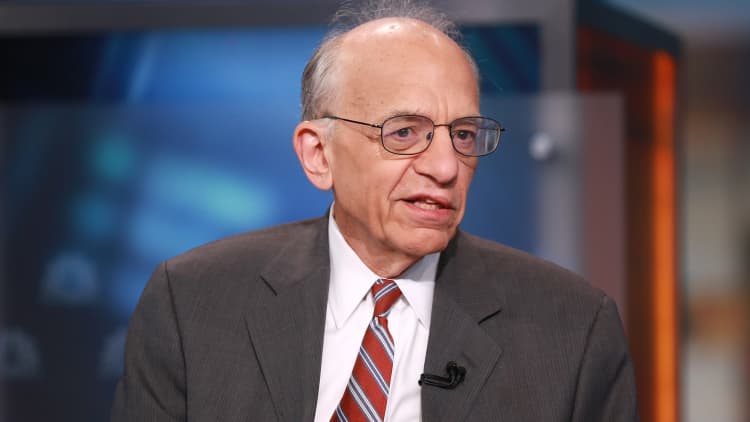
President Donald Trump will need to make a deal to end the trade war with China if he wants to win reelection, Wharton School professor Jeremy Siegel told CNBC on Thursday.
"My feeling is that the only chance Trump has for reelection is a good economy and a good stock market," the longtime stock bull said on "Squawk Alley."
Trump would have to want to "give up reelection" to continue fighting with the world's second largest economy and risk prolonged global upset, Siegel said. "I don't think that's in his equation."
"I think he's going to get the best thing he can," Siegel added, saying he expects a deal to be made by next summer, ahead of the Democratic and Republican nominating conventions, held in July and August, respectively.
The two countries are expected to resume trade negotiations in early September. However, Wall Street saw markets fall this week as trade tensions between Washington and Beijing escalated.
China on Monday allowed its currency to slide to its lowest point in more than a decade. The Trump administration later Monday labeled Beijing a "currency manipulator," the first such designation in 25 years.
Trump has frequently complained that a strong dollar against China's yuan gives Beijing a trade advantage, and he kept it up in a series of tweets Thursday morning.
The president also put in another dig at Federal Reserve Chairman Jerome Powell, calling again on central bankers to further cut interest rates. The Fed reduced rates last month, and it's expected to cut next month too.
Bringing down the cost of borrowing money can help offset the negative economic impact of the 25% tariffs that the U.S. has put on $200 billion worth of Chinese goods. Trump plans to put levies on the rest of China's imports as of Sept. 1.
However, Siegel believes that in the end Trump will "make a deal with the Chinese to get the economy back on track," adding he thinks "that's his only reelection strategy that will work for him."


